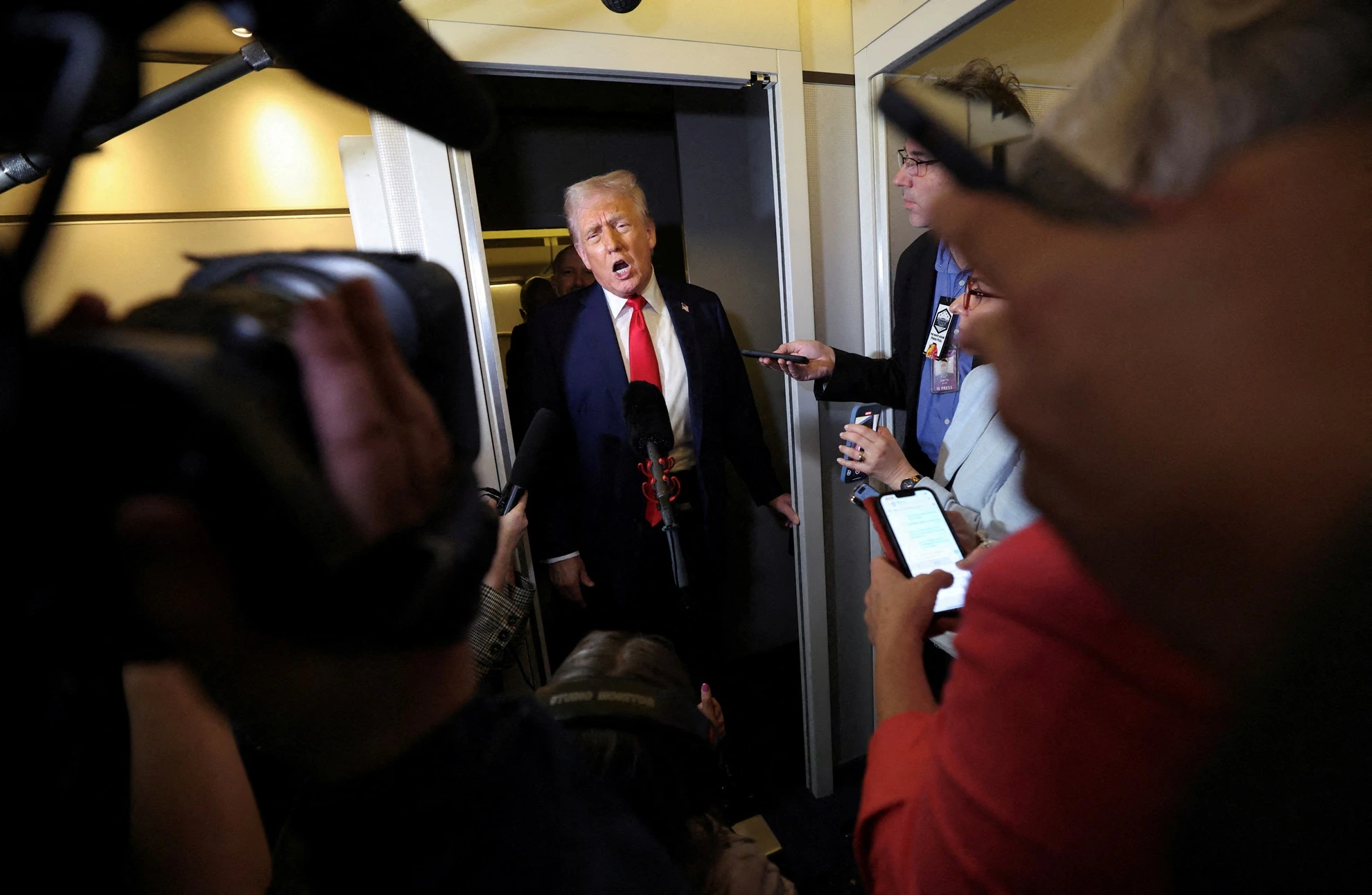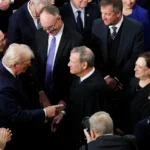U.S. President Donald Trump has suggested that he may ease tariffs on Chinese imports if China agrees to approve the sale of TikTok to American investors. The unexpected remark came just one day after Trump’s administration introduced sweeping new trade measures, including a 34% tariff on Chinese goods.
“We have a situation with TikTok where China will probably say, ‘We’ll approve a deal, but will you do something on the tariffs?’” Trump told reporters aboard Air Force One. “The tariffs give us great power to negotiate.”
Trump’s statement illustrates how economic tools like tariffs are being used not just to punish, but to negotiate — especially when it comes to regulating Chinese technology companies operating in the U.S.
A High-Stakes Deal Approaches Final Deadline
Trump confirmed that his administration is “very close” to finalizing a deal that would allow TikTok to remain operational in the U.S. under new ownership. In 2023, Congress passed legislation requiring TikTok’s Chinese parent company, ByteDance, to divest its U.S. operations or face a nationwide ban. Trump extended the deadline for divestment to Saturday.
“We’re very close to a deal with a very good group of people,” the president said.
Vice President JD Vance told Fox News the final terms could be revealed before the deadline, suggesting that both political and corporate stakeholders are moving quickly to finalize an agreement. Talks are reportedly ongoing between the White House, Republican lawmakers, ByteDance, and the Chinese government, which would need to approve any transfer involving the app’s core technology.
Proposed Ownership Restructure: Who Gets What?
As reported by The Financial Times, the deal under consideration involves spinning off TikTok’s U.S. business into a separate company backed by American investors. The plan is aimed at reducing Chinese ownership and complying with U.S. national security legislation.
The structure currently being discussed looks like this:
- Roughly 50% of TikTok U.S. would be owned by new external American investors, such as Andreessen Horowitz, Blackstone, Silver Lake, and others.
- 30% would be retained by existing investors, including General Atlantic, Susquehanna, KKR, and Coatue.
- ByteDance would retain a minority stake of just under 20%, in compliance with the U.S. legal requirement that limits ownership by a “foreign adversary.”
Meanwhile, tech giant Oracle is expected to oversee the app’s data security and ensure compliance with U.S. standards, continuing its current role as TikTok’s cloud infrastructure partner.
The Core Battle: Who Controls the Algorithm?
At the center of the dispute is TikTok’s algorithm — the sophisticated technology that curates content and powers the app’s massive popularity. Chinese regulators have long insisted that this intellectual property remain under Chinese ownership, while U.S. lawmakers have demanded that full control be transferred to an American entity.
According to sources cited by The Financial Times, one proposed compromise would allow ByteDance to continue managing and developing the algorithm, while licensing its use to the U.S.-based company.
However, critics argue that this arrangement does not go far enough. Prominent voices within the Trump administration — including Secretary of State Marco Rubio and National Security Advisor Mike Waltz — have long opposed any deal that leaves ByteDance in charge of the app’s core technology. They argue that licensing access is not sufficient to address national security concerns.
Legal scholars and cybersecurity experts have also expressed skepticism, insisting that the only way to fully comply with U.S. law is to ensure the algorithm is developed, operated, and maintained entirely by a U.S.-controlled company.
China Remains Silent
The Chinese Embassy in Washington has not issued any comment regarding the ongoing situation. Representatives from ByteDance have also declined to respond to media inquiries. Nevertheless, sources indicate that negotiations are continuing at an intense pace — and the outcome may influence not only the fate of TikTok, but also the broader trajectory of U.S.–China relations.
Thus, the TikTok dispute has evolved beyond a matter of national security or tech market regulation — it has become a geopolitical instrument. President Donald Trump is openly using tariffs as a tool of pressure and a lever to extract concessions from China. The TikTok deal could set a precedent for how far the United States is willing to compromise when it comes to controlling digital giants — and how far China is willing to bend in order to maintain influence over global technology platforms.
This article was prepared based on materials published by The Financial Times. The author does not claim authorship of the original text but presents their interpretation of the content for informational purposes.
The original article can be found at the following link: The Financial Times.
All rights to the original text belong to The Financial Times.





















